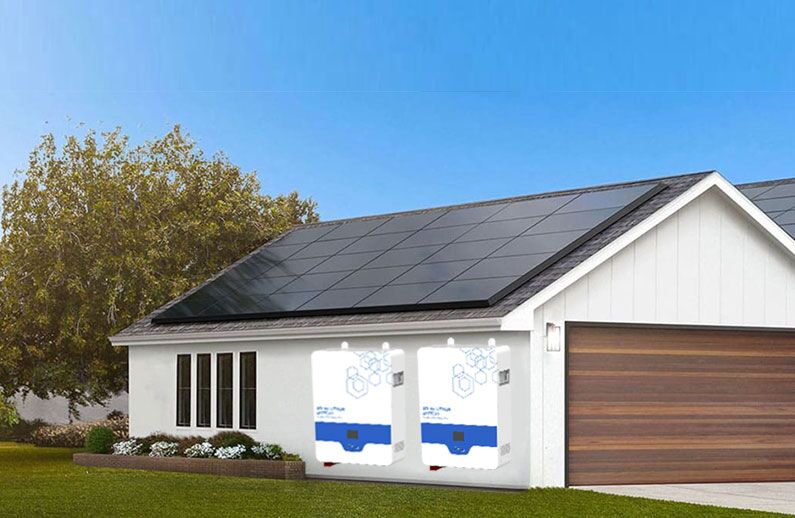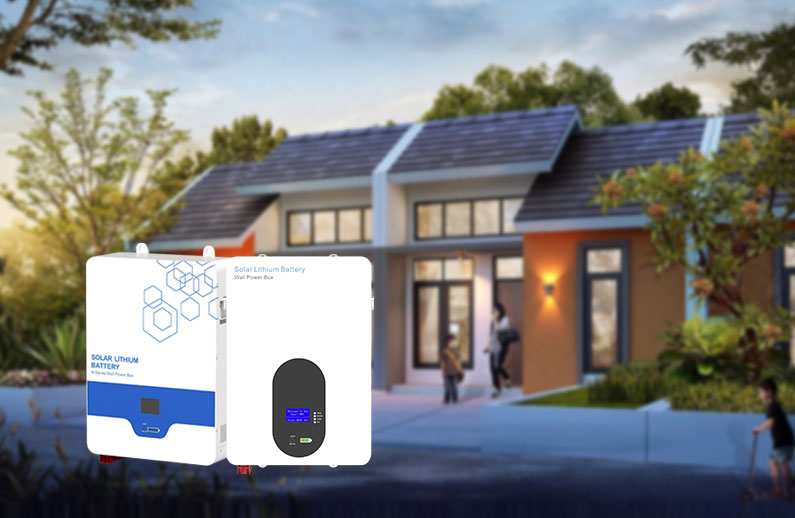Key Types of Lithium Batteries for Solar
Nov 27, 2024
Solar energy is a popular and sustainable solution for powering homes, businesses, and even remote applications. To maximize its benefits, selecting the right solar battery is crucial. Lithium solar batteries, known for their efficiency and long lifespan, are a top choice for solar storage systems. But which type of lithium battery suits your solar setup best? Let’s explore.
Types of Lithium Batteries for Solar Use
Several types of lithium batteries are commonly used for solar applications, with lithium iron phosphate (LiFePO4) being the most favored. LiFePO4 batteries are safe, durable, and have excellent cycle life compared to other lithium battery chemistries like lithium cobalt oxide (LiCoO2) or lithium manganese oxide (LiMn2O4).
Lithium Iron Phosphate (LiFePO4):
These batteries are ideal for solar systems due to their stability and resistance to overheating. They also offer thousands of charge cycles, making them perfect for daily energy storage needs.
Lithium Nickel Manganese Cobalt (LiNiMnCoO2 or NMC):
NMC batteries are known for their high energy density and lightweight design. However, they may not last as long as LiFePO4 batteries in solar applications where frequent charging cycles are required.
Voltage Options: Choosing the Right Fit
Lithium batteries come in various voltage configurations, including 12V lithium batteries, 24V lithium batteries, and 48V lithium batteries. Each serves a specific purpose, and choosing the correct one depends on your solar system's requirements.
12V Lithium Battery
A 12V lithium battery is an excellent choice for small-scale solar setups. These batteries are commonly used in off-grid cabins, RVs, and boats where compact energy storage is needed. Their lightweight design makes them easy to transport and install.
24V Lithium Battery
The 24V lithium battery is a mid-range option, offering more capacity than 12V systems. They are often used in medium-sized solar applications, such as powering off-grid homes or small businesses. A 24V system is more efficient than a 12V one because it requires lower current, reducing energy loss during transmission.
48V Lithium Battery
For larger solar systems, a 48V lithium battery is the ideal choice. These batteries are designed to handle significant energy demands, making them suitable for residential and commercial installations. Their high efficiency and capacity ensure stable power delivery, even during peak usage periods. They are also more compatible with modern solar inverters and energy management systems.
Key Considerations When Choosing a Lithium Battery
When selecting the best lithium battery for your solar setup, consider the following factors:
Capacity and Voltage: Ensure the battery meets your energy storage needs without overloading your system.
Cycle Life: Opt for batteries with high cycle life to maximize value over time.
Safety: Prioritize chemistries like LiFePO4 for safer operation.
Scalability: Choose a battery system that can be expanded as your energy needs grow.
Why Lithium Batteries Are the Best for Solar
Lithium batteries offer numerous advantages over traditional lead-acid options, including higher energy density, longer lifespan, and faster charging times. They also perform well in varying temperatures and require minimal maintenance, making them the go-to choice for modern solar systems.
By understanding the types of lithium batteries and their voltage configurations, you can select the best option to enhance your solar energy system’s performance and reliability. Whether you choose a 12V lithium battery for a compact setup, a 24V lithium battery for medium-scale applications, or a 48V lithium battery for large installations, lithium technology ensures efficient and sustainable energy storage.



 Network Supported
Network Supported